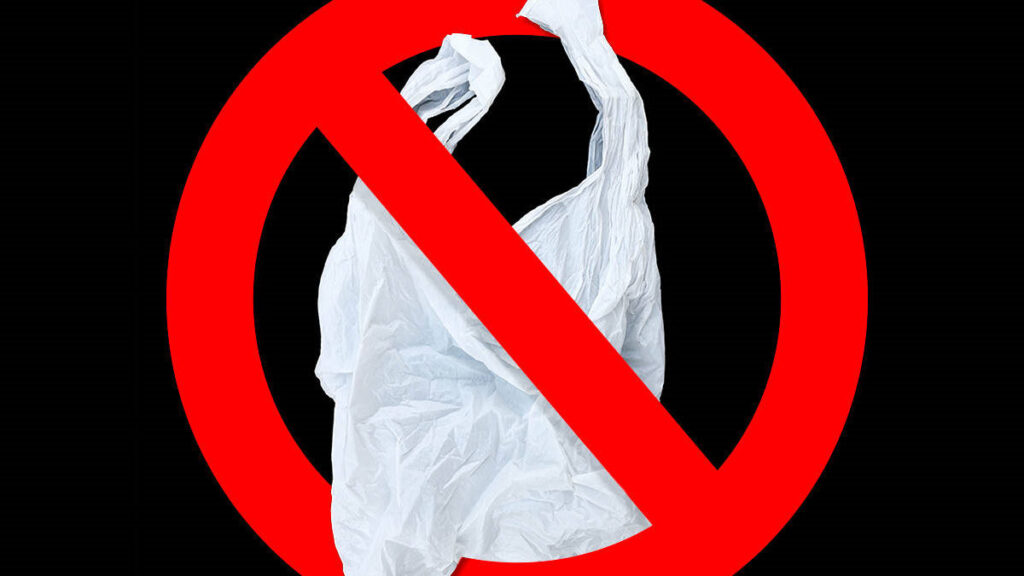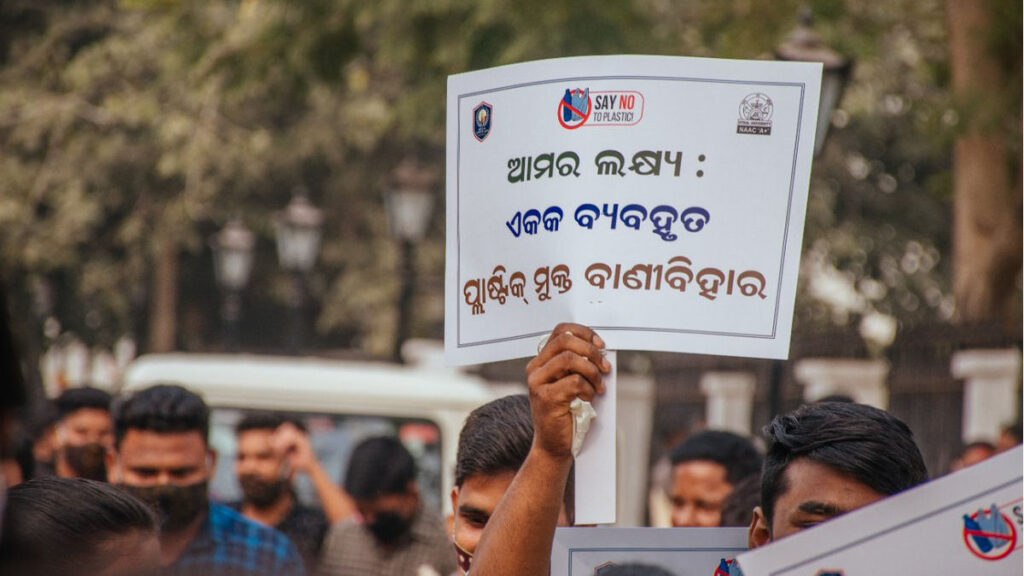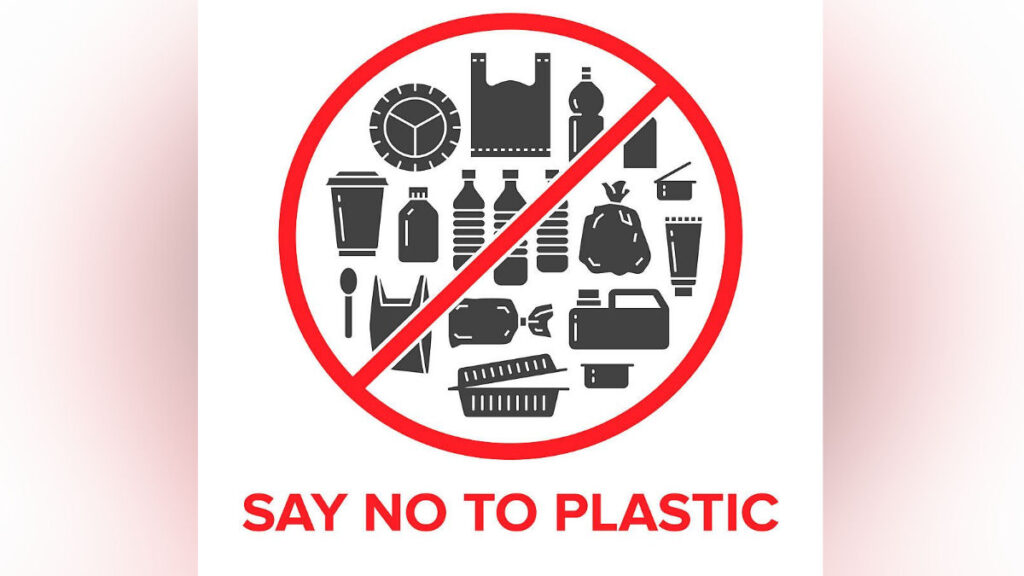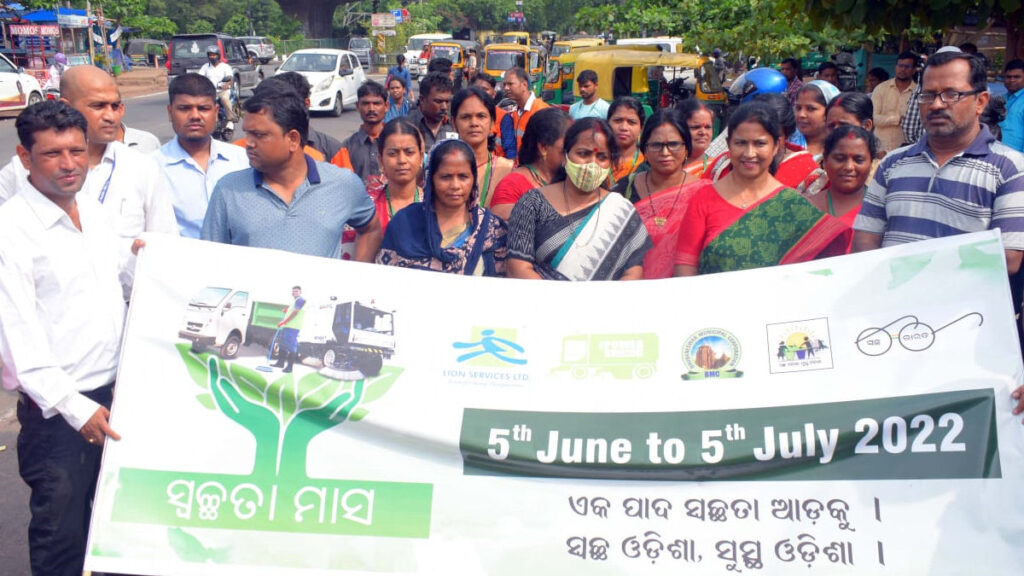Enforcing Single-use Plastic Ban
In August last year, the Centre announced a ban on single-use plastics (SUP) beginning July 2022. The Ministry for Environment, Forest and Climate Change had issued a gazette notification last year announcing the ban, and has now defined a list of items that have been banned since 1st July 2022. “The manufacture, import, stocking, distribution, sale and use of following SUP, including polystyrene and expanded polystyrene commodities shall be prohibited with effect from the 1st July, 2022,” read the Ministry notification. My City Links probed into the ban to explore more about the ban and its effects. Read on.
What is single-use plastic?
As the name suggests, single-use plastic refers to plastic items that are intended to be used ‘only once’ before being disposed of or recycled. SUP contributes to the highest share of plastic manufactured and used. From packaging of items to bottles (shampoo, detergents, cosmetics), polythene bags, face masks, coffee cups, cling film, trash bags, food packaging, etc., all are composed of SUPs.

The current trajectory of production reveals that SUP could account for 5-10% of greenhouse gas emissions by 2050. The report also found that India features in the top 100 countries of SUP waste generation- at rank 94 (the top three being Singapore, Australia and Oman). India’s net generation of SUP waste is 5.6 million metric tonnes and per capita generation is 4 kg per year. Its domestic production accounts for 11.8 MMT, annually, and imports of 2.9 MMT.
What are the items being banned?
The items on which the Central Pollution Control Board (CPCB) has announced a ban are earbuds, balloon sticks, candy and ice-cream sticks; cutlery items including plates, cups, glasses, forks, spoons, knives, trays; sweet boxes; invitation cards; cigarette packs; Polyvinyl Chloride (PVC) banners measuring under 100 microns; and polystyrene for decoration. A ban has already been imposed on polythene bags under 75 microns since September 2021, expanding the limit from the earlier 50 microns, by the Ministry. From December 2022, the ban will be extended to polythene bags under 120 microns.
“The ban is being introduced in phases so that manufacturers get time to shift to thicker polythene bags that are easier to recycle and are more eco-friendly,” said an official of Bhubaneswar Municipal Corporation.
According to the Plastic Waste Management Rules, 2016, there is also a complete ban on sachets using plastic material for storing, packing or selling gutkha, tobacco and pan masala. “The existence of plastic in the environment is a big problem. When plastic remains in the environment for long periods of time and does not decay, it turns into microplastics. It first enters our food sources and then the human body, and this is extremely detrimental to our health. These items are difficult to collect, especially since most are either small, or discarded directly into the environment so it becomes difficult to collect for recycling, unlike the much larger items,” added the official.

Punyashlok Panda shared his opinion on the ban. “The production and sale of SUP items is miniscule. The largest share of SUP is that of packaging- which accounts for as much as 95% – from toothpaste to shaving cream to frozen foods. The items are of low value and account for low turnover and are very unlikely to have a big economic impact, which could be a contributing reason. Having said that, we do need to start with something, and this is a beginning,” said Punyashlok.
How will the ban be enforced?
The ban is monitored by the CPCB from the Centre, and by the State Pollution Control Boards (SPCBs) that report to the Centre regularly. Directions have been issued at national, state and local levels to not supply raw materials to industries engaged in the banned items.
The SPCBs and Pollution Control Committees are instructed to modify or revoke consent to operate issued under the Air/Water Act to industries engaged in SUP items. Local authorities have been directed to issue fresh commercial licences with the condition that SUP items will not be sold on their premises, and existing commercial licences will be cancelled if they are found to be selling these items.
In the first week of the ban, the CPCB issued one-time certificates to 200 manufacturers of compostable plastic and the BIS passed standards for biodegradable plastic. Those found violating the ban are to be penalised under the Environment Protection Act 1986, which allows for imprisonment up to 5 years, or a penalty up to Rs. 1 lakh, or both. Violators will also be liable to pay Environmental Damage Compensation by the SPCB. In addition, there are municipal laws on plastic waste, with their own penal codes which can be imposed.
How are other countries dealing with SUP?

Earlier this year, 124 countries who are parties to the United Nations Environment Assembly, including India, signed a resolution to draw up an agreement which will in the future make it legally binding for the signatories to address the full life of plastics from production to disposal, to end plastic pollution. Bangladesh was the first country to ban thin plastic bags in 2002. New Zealand became the latest country to have banned plastic bags in July 2019. China issued a ban on plastic bags in 2020 with phased implementation. As of July 2019, 68 countries have imposed plastic bag bans with varying degrees of enforcement.
On July 2, 2021, the Directive on SUPs came into effect in the European Union (EU). The directive enforces a ban on certain SUPs for which alternatives are available; SUP plates, cutlery, straws, balloon sticks and cotton buds cannot be placed on the markets of the EU member states. The same measure applies to cups, food and beverage containers made of expanded polystyrene, and all products made of oxo-degradable plastic.
Sulagna Panigrahi an Odia residing in California, USA, shared the scenario there regarding plastic ban. “The rules are strict here and moreover people are very mindful of what they use and not. Plastic is rarely used and proper measures are taken to recycle and reuse it. It is easier to manage here at the government and the people both take it upon themselves to do their part diligently,” she shared.
How has the ban affected Odisha?
In response to the direction of the Central Pollution Control Board, the State government imposed a ban on manufacture, import, stocking, distribution, sale and use of identified SUP items from 1st July 2022.

A senior official of the Forest, Environment and Climate Change department said that the Odisha State Pollution Control Board (OSPCB) is the implementing authority while the Panchayati Raj and Housing and Urban Development departments are responsible for enforcing the ban in rural and urban areas. He further said the Transport department also has a major role to play in proper enforcement of the ban as the states and Union Territories have been instructed by the CPCB to set up border checkpoints to stop interstate movement of any banned SUP items.
An enforcement team of the Bhubaneswar Municipal Corporation (BMC) on 30th June 2022 visited Rajmahal and Bapuji Nagar area and seized polythene packets from different stores. Around Rs 7,000 fine was also collected from the violators. BMC officials said they have collected around Rs. 26.42 lakh fine between December 2018 and May 2022 and seized around 21 tonne plastic in this period. They, however, said the drive had been hampered due to the pandemic and will be intensified in the coming days.
“We had given time to the vendors from June 5 to do away with use of polythene and other single-use plastic items. People, especially traders and vendors, who are found flouting the norms will face action as per the Plastic Waste Management Regulations 2021,” said Mayor Sulochana Das. Municipal Commissioner Vijay Amruta Kulange said apart from enforcement, awareness among masses will be strengthened. BMC officials said zonal level squads have been formed to check use of the prohibited items and take appropriate action against the violators.
Why has the implementation of the ban been on the backseat for 3 years in Odisha?
The Odisha government had imposed a ban on single-use plastic items on October 2, 2019. Initially, the ban came into effect in urban areas and later was extended to all rural pockets of the state. However, even after three years a complete check on SUP items has not been possible.
Though raids are launched by enforcement agencies including the BMC, it has so far failed to ensure a complete ban. The traders as well the customers blame the State government for not being able to take stern action for the implementation of the norm. They demand concrete measures to plug loopholes and crackdown on the manufacturing companies and a complete stoppage of production. But are the authorities only to be blamed? This is a question to ponder on.
“Stren action needs to be taken to eradicate plastic use. A lot of awareness drives have already been launched. Now it is time to act,” said environmentalist Gopalkrisha Sahu.
Biswajit Behera, a trader said, “If the enforcement authorities take proper steps to check production, then the problem would not arise in the first place. Due to easy availability, plastic is available in markets and consumers are using it. We are selling because the consumers are asking for it.”
Snehalata Swain, a consumer said, “Most people usually carry bags when they go to buy anything and polythene bags are required occasionally. The government should act on manufacturing units instead of cracking down on consumers. If the traders stop selling, people will be mindful enough to carry their own bags and hence not use SUP.”
BMC Mayor Sulochana Das, on the other hand said, crackdown and enforcement drives are being launched but the people are not getting aware. “We had recently launched a drive and a decision on penalty was taken. But as people are not aware, we are giving time,” said the Mayor.
Renowned water and climate change expert who is popularly known as Water Man of Odisha shared his views on the ban. “Banning SUP is certainly a welcome step as it can help reduce pollution of our freshwater and marine ecosystems in the long run. However, there are a few challenges that we need to address. First, banning production needs to precede a ban on usage, or else the local vendors and poor traders will have to pay a heavy price when regulators will try to impose these bans. Second, enforcement of the ban will remain ineffective if we depend on the same authorities who have already been dealing with many tasks. I have seen how municipality authorities have miserably failed in enforcing all such bans before. Third, we need to find ways to deal with corruption in the enforcement authorities. Corruption is another factor that is responsible for lack of enforcement of current plastic ban orders,” he shared.
The Government has been taking measures for awareness generation towards elimination of single-use plastics. The awareness campaign has brought together entrepreneurs and startups, industries, central, state and local governments, regulatory bodies, experts, citizens organisations, R&D and academic institutions. The success of the ban will only be possible through effective engagement and concerted actions by all stakeholders and enthusiastic public participation. So it is time for all of us to pledge to be diligent citizens and do our sincere bit for the environment.
Table
What are the alternatives for SUPs in the market?
Here is a list of long-lasting plastic alternatives available right now.
Stainless steel
Tough and easy to clean, stainless steel options for reusable food and beverage storage is the best alternative for plastic containers. You can replace single-use cups, kitchen storage, lunch boxes, and more with this durable metal.
Glass
Although it is not biodegradable, glass is inert, inexpensive and infinitely recyclable. And since many food items come packaged in glass, upcycling glass jars into food storage is a no-cost way to give your food packaging a new life. They can also be repurposed to store food items and homemade drinks, or decorated and turned into homemade gifts.
Platinum silicone
Made primarily of sand, food grade platinum silicone is flexible and durable. It’s also heat tolerant, so you can boil, bake, and cook in these products without danger of denaturing. Look for silicone products without plastic fillers.
Beeswax-coated cloth
Used primarily as a replacement for plastic wrap and plastic bags, beeswax-coated fabric is easy to use and easy to clean. It also smells great.
Natural fibre cloth
Natural cloth can replace plastic bags. Sustainable clothing made from organic cotton, wool, hemp, or bamboo won’t shed plastic fibres when washed. Felted or recycled wool is a versatile, safe, and compostable material for children’s toys, household containers, and more.
Wood
A renewable resource, wood from sustainably-managed forests can replace plastic in household items like cleaning brushes, kitchen utensils, and cutting boards.
Bamboo
This fast-growing renewable resource can replace plastic in items like tableware and drinking straws. It is lightweight, durable, and compostable.
Pottery and Other Ceramics
Around for millennia, pottery and other fired ceramics offer a stable, waterproof alternative that’s good for food storage and tableware.
Paper
In days gone by, many things were packaged in plain paper. And while better than plastic, paper can’t be recycled infinitely because every time it is reused, the fibres get shorter, limiting its use. However it can be put in the home compost.
Cardboard
Cardboard is fully compostable at home as long as it is not coated in plastic. Many companies are now packaging their products in plain cardboard to cut down on waste.
Keep in mind that anything you buy has an environmental footprint that leaves a deep impact on earth. Though longer lasting than plastic, things made from glass, metal, and such still take energy to make and transport. For these swaps to make sense, one needs to use them over and over and over again. Buying well-made, durable products will help ensure maximum use from whatever you choose.

Author: Aafreen Firdaus
Aafreen is a doting mother to several kitties and a doggo who loves to pamper everyone with delicious food. She is a free spirit and a wizard of words and she loves to tell beautiful stories through her writing. She is also a loving and caring soul, always ready to pitch in with a helping hand and a smile on her face.
Read more from author


